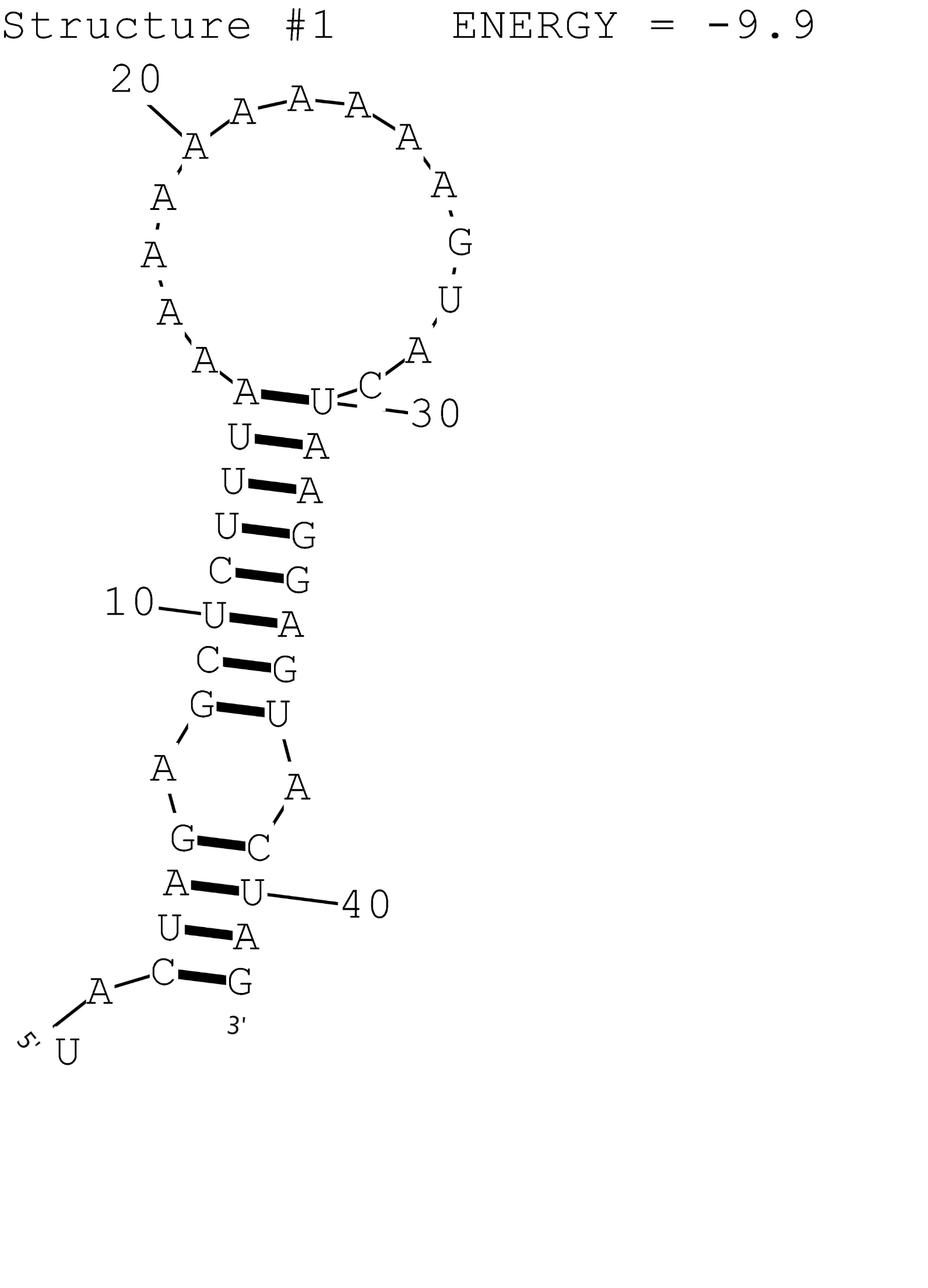Difference between revisions of "Part:BBa K1824556"
| Line 7: | Line 7: | ||
[[Image:A1 RNA Thermometer.jpg|360px]] | [[Image:A1 RNA Thermometer.jpg|360px]] | ||
[[Image:RNA_thermometer.png|500px]] | [[Image:RNA_thermometer.png|500px]] | ||
| − | <br>'''XJTLU-CHINA:' | + | <br>'''Left picture: XJTLU-CHINA:''' '''Figure 1:'''Possible secondary structure of RNAT A1.'''Right picture: TuDelft 2008:''''''Figure 2:'''Responsiveness of mRNA structures to environmental cues. |
Revision as of 20:16, 4 September 2015
RNA Thermometer A1 (Specially designed for J23119)
A1 RNA thermometer have the hairpin structure that harbors the Shine-Dalgarno sequence (SD sequence) and, in this way, make it inaccessible to the 30S unit of the bacterial ribosome, resulting in translational inactivation. The melting temperature of this RNA thermometer is 42 Celsius degree. Once reaching the melting temperature, hairpin structure would vanish and as a result, exposing the SD sequence to trigger the translation process. The possible secondary structure of A1 was simulated by RNAstructure (Fig.1). For testing results of A1 RNAT, See below.


'Left picture: XJTLU-CHINA: Figure 1:Possible secondary structure of RNAT A1.Right picture: TuDelft 2008:'Figure 2:Responsiveness of mRNA structures to environmental cues.
Source
A1 RNA thermometer was derived from the ROSE family (ROSE stands for Repression Of heat Shock gene Expression).
References
1. Nocker, A. et al. mRNA-based thermosensor controls expression of rhizobial heat shock genes. Nucleic Acids Res. 29, 4800–4807 (2001).
Sequence and Features
- 10COMPATIBLE WITH RFC[10]
- 12COMPATIBLE WITH RFC[12]
- 21COMPATIBLE WITH RFC[21]
- 23COMPATIBLE WITH RFC[23]
- 25COMPATIBLE WITH RFC[25]
- 1000COMPATIBLE WITH RFC[1000]
